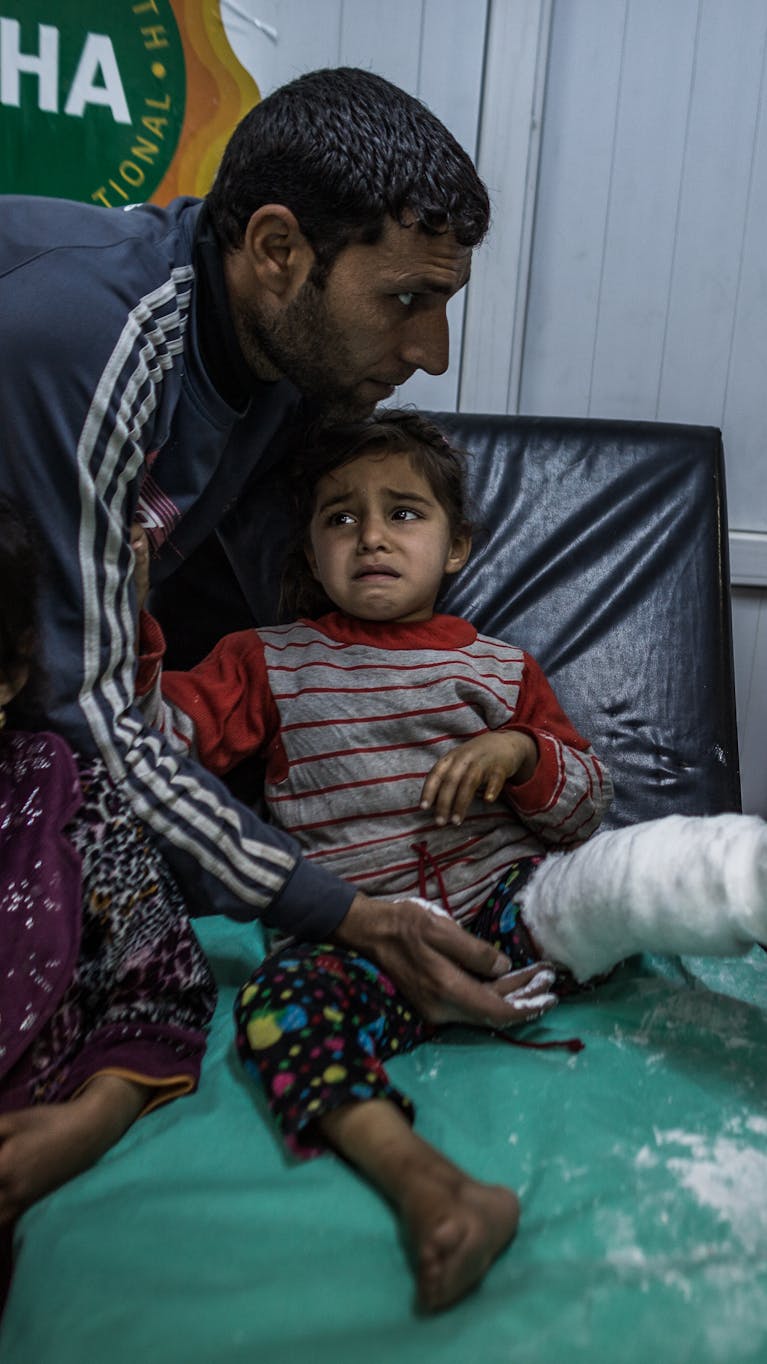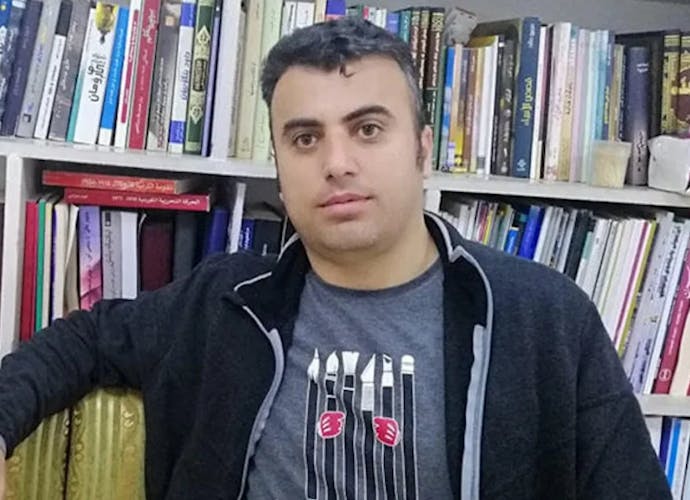
Iraq: Civilians killed by airstrikes in their homes after they were told not to flee Mosul
Hundreds of civilians have been killed by airstrikes inside their homes or in places where they sought refuge after following Iraqi government advice not to leave during the offensive to recapture the city of Mosul from the armed group calling itself Islamic State (IS), said Amnesty International. Survivors and eyewitnesses in East Mosul said they did not try to flee as the battle got underway because they received repeated instructions from the Iraqi authorities to remain in their homes.
The shocking spike in civilian casualties from both US-led coalition airstrikes and ground fighting between the Iraqi military and IS fighters in recent months has also raised serious questions about the lawfulness of these attacks. In one of the deadliest strikes in years just days ago on 17 March 2017, up to 150 people were reported killed in a coalition airstrike in the Jadida neighbourhood of West Mosul, eventually leading the coalition to announce that it is investigating the incident.
“Evidence gathered on the ground in East Mosul points to an alarming pattern of US-led coalition airstrikes which have destroyed whole houses with entire families inside. The high civilian toll suggests that coalition forces leading the offensive in Mosul have failed to take adequate precautions to prevent civilian deaths, in flagrant violation of international humanitarian law,” said Donatella Rovera, Senior Crisis Response Adviser at Amnesty International, who carried out field investigations in Mosul.
“The fact that Iraqi authorities repeatedly advised civilians to remain at home instead of fleeing the area, indicates that coalition forces should have known that these strikes were likely to result in a significant numbers of civilian casualties. Disproportionate attacks and indiscriminate attacks violate international humanitarian law and can constitute war crimes.
“The Iraqi government and the US-led coalition, must immediately launch an independent and impartial investigation into the appalling civilian death toll resulting from the Mosul operation.”
Fleeing the city ahead of the fighting was also extremely difficult for residents of Mosul, as IS militants routinely punished and at times killed those caught trying to leave. Wa’ad Ahmad al-Tai, a resident of the al-Zahra neighbourhood of East Mosul, was among many civilians who followed Iraqi government advice to stay put.
“We followed the instructions of the government who told us ‘stay in our homes and avoid displacement’. According to the instructions, residents who had nothing to do with Daesh [IS, in Arabic] should stay in their homes… We heard these instructions on the radio… Also leaflets were dropped by planes. This is why we stayed in our homes,” he said.
As the fighting intensified Wa’ad Ahmad al-Tai, his brother Mahmoud and their families sought shelter at their other brother’s two-storey home hoping it would offer them more protection.
“We were all huddled in one room at the back of the house, 18 of us, three families. But when the house next door was bombed, it collapsed on us, precisely over the room we were sheltering in. My son Yusef, nine, and my daughter Shahad, three, were killed, together with my brother Mahmoud, his wife Manaya and their nine-year-old son Aws, and my niece Hanan. She was cradling her five-month-old daughter, who survived, thank God,” he said.
Hind Amir Ahmad, a 23-year-old woman who lost 11 relatives, including her parents, grand-parents and four young siblings, in a coalition airstrike in East Mosul, described the fatal attack on 13 December 2016 to Amnesty International:
“We were sleeping when the house literally collapsed on us. It was a miracle none of us was killed. We ran to my uncle’s house nearby. At about 2pm that house too was bombed and collapsed on us… almost everyone in the house was killed – 11 people. My cousin, two aunts and I were the only ones who survived. Everyone else died. It took us six days to find only pieces of their bodies, which we buried in a mass grave in a field nearby… I don’t know why we were bombed. All I know is that I have lost everyone who was dearest to me.”
In another air strike, 16 people were killed in three adjacent houses in the Hay al-Mazaraa district of East Mosul on 6 January 2017. Survivors and neighbours told Amnesty International that in so far as they knew, no IS fighters had been present in or around the house. Among the victims were the three children and the mother of Shaima’ Qadhem, who had been arrested and killed by IS the previous year. Ahmad, a relative of the victims, told Amnesty International:
“This family was targeted by all sides. Last year Daesh arrested and executed the children’s mother and now the children themselves were killed by a coalition bombing. Civilians got trapped in this war and no one helped them. When I tried to leave Mosul with my family, we were caught by Daesh. They were going to pour petrol over us and burn us. In the end we managed to escape death by paying a heavy fine. Others were not so lucky and were executed… Did the government, the coalition think how to protect the civilians in this war? It doesn’t seem so.”
International humanitarian law (also called the laws of war) demands that all feasible precautions must be taken by warring parties to a conflict to minimize harm to civilians, and that attacks must not cause disproportionate harm to civilians – that is, damage which would be excessive in relation to the concrete and direct military advantage anticipated.
IS use of civilians as human shields
In many of the cases investigated by Amnesty International where civilians were killed in coalition airstrikes, surviving residents and neighbours told the organization that IS fighters had been present in or around the targeted houses – usually on the roof or in the garden – as well as in or around other nearby houses which were not targeted. In all the cases the air strikes destroyed entire houses, often also destroying or severely damaging nearby houses and properties.
“IS shamefully resorts to using civilians as human shields, a serious violation of the laws of war that amounts to a war crime. In a densely populated residential area, the risks for the civilian population become enormous. However, the IS’s use of human shields does not absolve Iraqi and coalition forces from their obligation not to launch disproportionate attacks,” said Donatella Rovera.



